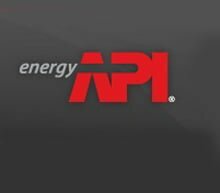 Environmental and industry groups have weighed in with the White House Office of Management and Budget regarding soot standards the EPA plans to finalize today. Industry groups, such as the American Petroleum Institute, argued the rule will increase business costs for electric utilities and manufacturing, while health and green groups including the American Lung Association argue the rule’s public health benefits outweigh economic costs, The Hill said.
Environmental and industry groups have weighed in with the White House Office of Management and Budget regarding soot standards the EPA plans to finalize today. Industry groups, such as the American Petroleum Institute, argued the rule will increase business costs for electric utilities and manufacturing, while health and green groups including the American Lung Association argue the rule’s public health benefits outweigh economic costs, The Hill said.
Tokyo Electric Power Co, operator of the Fukushima nuclear power plant, said its "lack of a safety culture" and "bad habits" were behind the worst nuclear accident in 25 years. The company said it accepted the findings of a parliamentary inquiry into the Fukushima nuclear disaster that accused the company of "collusion" with industry regulators, Reuters reports.
The British government has lifted the country's ban on exploratory hydraulic fracturing, but because of environmental concerns, the government has called for controls. The levels of unusual seismic activity at which operations must stop is set at 0.5 magnitude. The ruling allows Cuadrilla Resources to resume the use of technology that caused earthquakes in 2011, Bloomberg said.
The EPA has given energy and mining companies permission to pollute aquifers in more than 1,500 places across the country that help supply more than half of the nation's drinking water, according to ProPublica. The news site aims to identify which aquifers have been polluted, and its investigation reveals that EPA records have not adequately tracked the exemptions issued, or their impacts, ProPublica said.
Conservative groups American Energy Alliance, Heritage Action for America, the Competitive Enterprise Institute, the American Conservative Union, and others are pushing lawmakers in states without renewable electricity targets to oppose an extension of the wind energy tax credit. The 21 states without such incentives are in the Southeast, Appalachia and the Gulf Coast, and also generally have less installed wind power. The groups say the tax credit is unfair to taxpayers in those states, The Hill said.
Leading US medical professionals, scientists and engineers have petitioned the Obama Administration to halt the push toward large-scale exportation of liquefied natural gas until the health impacts of fracking can be clarified. The petitioners, led by the Physicians, Scientists, & Engineers for Healthy Energy, say that in the absence of needed testing, the Obama Administration could expose Americans to potential health harms.
A group of Democratic and Republican lawmakers has a plan to change the tax code so wind, solar, biofuel and other renewable projects could qualify for beneficial tax structures commonly used by pipelines and other energy-related companies. Called "master limited partnerships," the structures allow companies to raise money in the stock market, while having income taxed only at the unit holder level, thus avoiding corporate income taxes, Reuters said.
Fuel storage and distribution company Harbor Fuel Oil on Nantucket Island in Massachusetts faces penalties of up to $177,500 for alleged violations of the federal Clean Water Act. The EPA said it filed a complaint against the company for failing to properly prepare for possible oil spills at its Nantucket facility, in violation of federal Facility Response Plan requirements.
Albee Realty Trust have resolved a penalty action for discharges of silt-laden storm water associated with development of a residential subdivision in Uxbridge, Mass., in violation of the Clean Water Act. Albee will pay a penalty of $24,000 for discharges of stormwater from the construction site without a permit for several years, the EPA said.